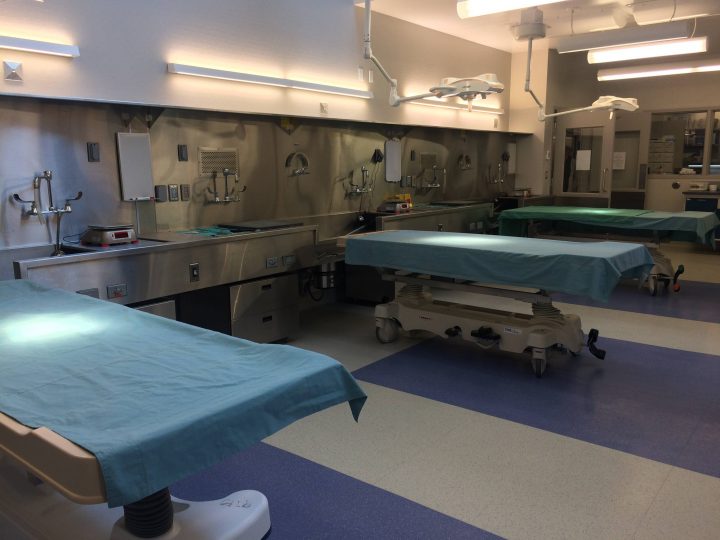The provincial government says changes are coming to Saskatchewan’s coroner’s service.

Justice Minister Don Morgan said these legislative amendments and other policy changes will help ensure the service is operating as effectively as possible.
“One of them allows for the chief coroner to review or change a coroner that’s not doing their work, to replace them and that’s not done at a political level, it’s done at their level,” Morgan said.
“And then appointments of coroners will no longer be done by the ministry, they’ll be done by the chief coroner. So it removes it from the eyes of, or the control of politicians … it’s a matter of wanting to have a professional coroner’s service so the chief coroner should be making those recommendations rather than having them made by politicians.”
The changes were recommended in the 2018 review of the Office of the Chief Coroner, now named the Saskatchewan Coroners Service. Former Saskatoon Police Service chief Clive Weighill led the review prior to being appointed chief coroner.
Weighill said if all the amendments are passed, the service will be comparable to every other jurisdiction in Canada.
“I heard a lot from people that were not happy with the way inquests were run. I think allowing the inquest coroner to make recommendations will go a long way. We’ve had several inquests where juries have listened to the evidence but they’ve been undecided on what they want to come up with on recommendations,” he said.

Get daily National news
“At least now we’ll have a learned person, all our inquest coroners are lawyers, we hire them specifically just to run inquests. They’re learned people, experienced people, and they’ll pick up on a lot of the nuances that maybe a lay jury wouldn’t.”

Weighill said he’s proud of the work the service has undertaken to better serve people but also acknowledged there is more work to do to boost public confidence in the service.
“We’ll be setting up a process where it’s very formal. Where if somebody wants an inquest, they’ll put it in writing, it will be completely reviewed, I have to give them an answer in so many days and I have to give it to them in writing (about) why we’re not going to have an inquest so they have something to fall back on,” he said.
“Certainly I think it opens the door for a lot more transparency and openness of the coroner’s service and to have that second look about an inquest.”
Government officials said the amendments make enhancements to the authority of the service and include:
- allowing coroners to make recommendations at the conclusion of an inquest;
- allowing the chief coroner to appoint coroners;
- granting the minister authority to appoint a deputy chief coroner, who will act as the chief coroner in the chief’s absence;
- granting the chief coroner authority to appoint regional supervising coroners;
- expressly authorizing coroners to investigate the deaths of Saskatchewan residents who die in other jurisdictions, or whose bodies have been moved from the province;
- updating coroners’ investigation powers, including the power to reopen investigations in limited cases where new evidence arises; and
- allowing the spouse, parent, child, sibling or personal representative of a deceased to request a review by the chief coroner of a coroner’s decision to not hold an inquest into the death of the deceased.
The amendments to the Coroners Act were introduced on Nov. 13.
Saskatchewan NDP justice critic Nicole Sarauer said they’re happy with the proposed legislative changes but highlighted the importance of action after recommendations come out of inquests.
“The coroner’s work is only as good as the ministry implementing the recommendations that are made,” she said.
“So it’s incumbent on the ministries to ensure that when these inquests happen and when these recommendations are made, they’re followed through by the ministries and we’ve seen instances where these very important recommendations essentially collect dust on the shelf somewhere.”
Weighill hopes the province will have a fully accredited forensic toxicology lab in three years.






Comments